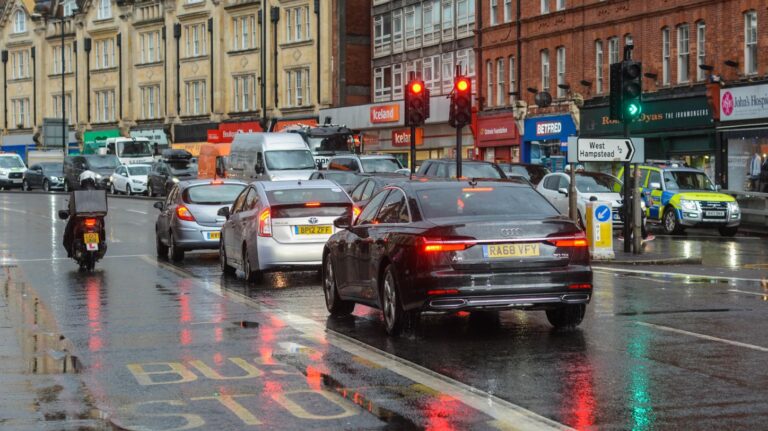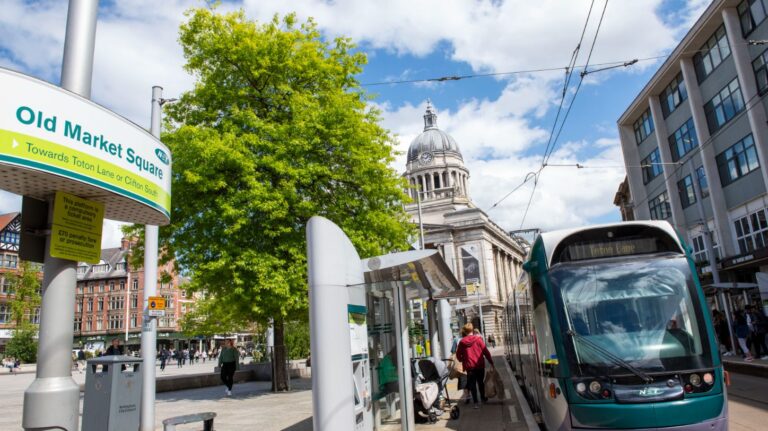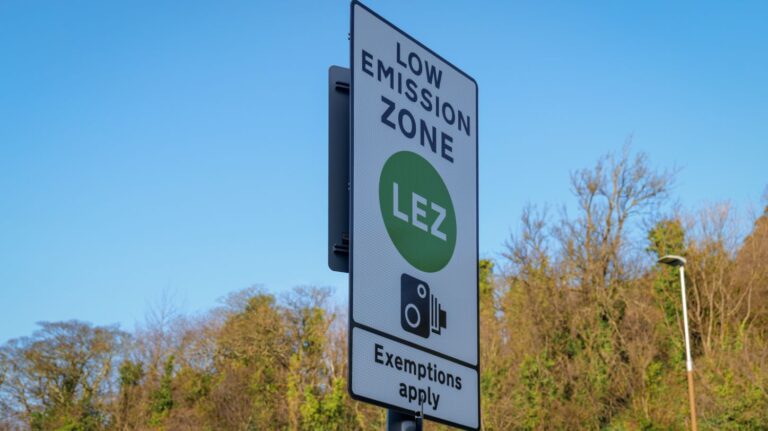As 2024 draws to a close, the editorial team behind City Transport & Traffic Innovation Magazine (CiTTi) – the UK’s leading B2B publication dedicated to advancements in sustainable urban mobility – reflects on a transformative year for the transportation sector, as well as the evolution of the CiTTi brand itself.
The past 12 months were partly shaped by the arrival of a new Labour government in July, which prompted a reassessment of core transport and traffic management policies. Central to this shift was the introduction of initiatives aimed at fostering more sustainable, accessible and integrated transport options. Chief among these was the rollout of a ‘National Bus Strategy,’ backed by nearly £1bin in government funding to end what the government described as the “postcode lottery” of bus services and ensure more consistent, affordable fares nationwide, with a £3 cap on single bus journeys.
The government also pledged sweeping reforms to improve local control of bus services, highlighted by new legislation that empowers local authorities to set routes and fares. To further encourage the use of buses, new regulations were introduced to improve the accessibility of local bus and coach services, ensuring more inclusive travel for disabled passengers.
Active travel received renewed attention, with increased investment in pedestrian and cycling infrastructure aimed at promoting healthier, greener mobility options. Rail services were also in the spotlight, with the first train services being brought back into public ownership as part of a broader effort to establish ‘Great British Railways,’ a centralised public body to oversee rail operations. In line with this, the transport secretary announced the opening of a £200m rail manufacturing facility in Goole to support domestic rail production and boost the local economy.
On roads, a nationwide drive to improve infrastructure saw the government commit to filling an additional seven million potholes, with the public actively encouraged to report roads in need of repair. Collectively, these measures form part of the government’s vision to deliver the “biggest overhaul to transport in a generation,” with an emphasis on local empowerment, sustainable travel and greater public accountability.
The Autumn Budget, set against the backdrop of rising environmental concerns and the drive for decarbonisation, reaffirmed the government’s stance on road pricing, as the freeze on fuel duty entered its 13th consecutive year.
Prior to Labour ascension to government in the summer, major strides were seen in zero-emission vehicle (ZEV) infrastructure. The introduction of the ZEV mandate, coupled with increased support for city-wide clean air zones accelerated the transition to cleaner transportation. London’s Ultra Low Emission Zone (ULEZ) alone accrued £370m in unpaid fines in 2024. Electric vehicle (EV) infrastructure development surged, with the UK’s EV charging network growing by nearly 50% in a year.
However, while the UK made notable progress in several areas in 2024, European regulators flagged key areas for improvement. Notably, decarbonisation indicators revealed that the EU’s green public investment requires €39bn (£32bn) annually to meet carbon reduction commitments, raising concerns about the adequacy of current funding levels.
Back in the UK, the Automated Driving Bill became law, cementing the path for autonomous vehicles on British roads. The bill outlined the legal framework for self-driving vehicles, including insurance and liability rules, and it paves the way for commercial deployment by 2025.
Efforts to establish a regulatory framework for electric vertical take-off and landing (eVTOL) aircraft advanced, with regulators, local governments and the global aviation sector collaborating to support the growth of urban air mobility. Trials in cities such as Bristol and Coventry are already underway, with commercial services expected to follow.
2024 was also a milestone year for CiTTi Magazine and its associated events, marked by the success of the third annual CiTTi Awards and the expansion of the Road User Charging Conference series to new global markets. The magazine also launched a refreshed design, enhancing its role as a leading voice in the transport sector.
Continue reading below to further explore some of the key themes and stories from 2024…

UK General Election 2024: each party’s key transport policies compiled and analysed
 In the lead-up to the UK’s 2024 general election, CiTTi Magazine provided an in-depth analysis of the key transport policies proposed by major political parties. The article examined each party’s stance on issues such as public transport funding, infrastructure development and environmental sustainability, offering readers a comprehensive overview of the potential future direction of the UK’s transport sector.
In the lead-up to the UK’s 2024 general election, CiTTi Magazine provided an in-depth analysis of the key transport policies proposed by major political parties. The article examined each party’s stance on issues such as public transport funding, infrastructure development and environmental sustainability, offering readers a comprehensive overview of the potential future direction of the UK’s transport sector.
Labour rules out new road pricing system in Autumn Budget
In October, the Labour government announced it would not implement a new road pricing system in the Autumn Budget. The decision followed a proposal from Campaign for Better Transport advocating for a per-mile charging scheme to replace the existing road tax system. A government spokesperson stated, “We have no plans to introduce road pricing. We are committed to supporting our automotive sector as we transition to electric vehicles in order to meet our legally binding climate targets.”
Bills to overhaul UK rail and bus services included in King’s Speech
In July, during the King’s Speech, the UK government unveiled plans to overhaul the nation’s rail and bus services. Key legislative proposals included the English Devolution Bill, granting new powers to metro mayors and combined authorities to support local growth, and the Better Buses Bill, aimed at removing the ban on publicly owned bus companies to enable local leaders to take control of their services. These initiatives were part of the government’s commitment to drive economic growth and improve public transport infrastructure across the country.
TfL hit by cybersecurity attack downing some live services
In September 2024, Transport for London (TfL) experienced a cyberattack that disrupted several live travel systems and compromised the bank details of approximately 5,000 Oyster Card customers. Upon detecting suspicious activity on September 1, TfL implemented measures to restrict access and initiated an investigation in collaboration with the National Crime Agency and the National Cyber Security Centre. As a result of the attack, live Tube arrival information became unavailable on certain digital platforms, and applications for new Oyster photocards were temporarily suspended.
Automated Vehicles Bill becomes UK law
In May 2024, the UK’s Automated Vehicles Bill received Royal Assent, becoming law and establishing a national legal framework for the safe deployment of autonomous vehicles. The then-UK transport secretary Mark Harper hailed this as a “milestone moment” for the self-driving industry, with the potential to transform travel. The Conservative government suggested that autonomous vehicles could be on British roads as early as 2026, aiming to position the UK at the forefront of self-driving technology regulation.

This year, CiTTi Magazine showcased the breadth and impact of its publisher, Akabo Media, and its portfolio of industry-leading events. Chief among these was the third annual CiTTi Awards which celebrated excellence and innovation across the transport and mobility sectors. The magazine also spotlighted Akabo Media’s expanding roster of globally recognised Road User Charging Conferences, held in Brussels, Abu Dhabi, Miami and Singapore, further cementing its position as a leader in the field of user-financed transportation.
In addition, CiTTi provided coverage of other key Akabo Media events, including the 28th Supply Chain Excellence Awards, which recognises outstanding achievements in logistics and supply chain management, and offered a coverage of the first-ever Sustainable Supply Chain Exhibition, underscoring its commitment to advancing sustainability in the sector.
Watch: CiTTi Awards 2024 highlights!
See the highlights from the third annual CiTTi Awards, which took place on Tuesday 26 November 2024 at the stunning De Vere Grand Connaught Rooms in London! The event was a night of celebration, championing the hard work and innovation demonstrated by the UK public-sector and their private-sector partners in enabling the sustainable, safe and efficient movement of people, goods and materials through urban environments. Hosted by acclaimed Irish comedian Andrew Ryan, the ceremony was attended by some 150 transport professionals from across the UK and beyond.
Road User Charging Conference 2024 Review
The May 2024 issue of CiTTi Magazine included an exclusive and comprehensive review of the 21st edition of the world’s longest-running independent global annual gathering of user-financed transportation professionals, which took place on 05-06 March 2024 at the Steigenberger Wiltcher’s in Brussels, Belgium, and saw more than 200 tolling, mobility pricing and road-usage charging practitioners in attendance.
Zeelo, Savills, Curb Cargo and Evri win at Supply Chain Excellence Awards 2024
Zeelo, Savills, Curb Cargo and Evri were among the winners at the 28th annual Supply Chain Excellence Awards, held on 28 October 2024 at the Grosvenor House Hotel on Park Lane in London…
Watch highlights of the first-ever Sustainable Supply Chain Exhibition!
Sustainable Supply Chain Exhibition 2024 – co-located with IntraLogisteX and Robotics and Automation – enjoyed a hugely successful launch year after nearly 9,000 attendees descended upon halls 6 and 7 of the NEC Birmingham.
Get ready for next year’s groundbreaking event dedicated to sustainable practices and processes in the supply-chain and logistics industry, returning to Halls 6 & 7 of the NEC Birmingham in 2025!

Robot parks bicycles automatically in underground space
Record-breaking turnout for Sustainable Supply Chain Exhibition, IntraLogisteX and Robotics and Automation 2024!
Cargo Bike Cruise highlights the rise of cargo bikes in London
“Work to fix UK’s public transport network starts now”, says transport secretary following King’s Speech
CiTTi Awards 2024 highlights!

UK Autumn Budget 2024: transport sector reacts
What the Red Sea crisis could mean for the EV industry and the planet
Increasing numbers of sexual offences on public transport recorded – but many experiences are still normalised and go unreported
UK transport industry reacts to Labour’s general election win
Did the Victorians have better roads than us? A history of Britain’s potholed streets

CiTTi interviews: Baroness Parminter
In February 2024, CiTTi Magazine interviewed Baroness Kathryn Jane Parminter, chair of the House of Lords Environment and Climate Change Committee, following the release of a report on the UK’s transition to electric vehicles (EVs). Baroness Parminter emphasised the necessity for the government to enhance its EV strategy to meet the 2050 Net Zero targets, highlighting the importance of consumer adoption and infrastructure development. She expressed concern over the then-government’s decision to delay the ban on new petrol and diesel car sales from 2030 to 2035, suggesting it could send a detrimental message to the public regarding the urgency of transitioning to EVs.
Beyond the bay
In March, CiTTi Magazine featured an in-depth analysis of Nottingham City Council’s Workplace Parking Levy (WPL), introduced in 2012 to address congestion and fund public transport improvements. The article examined the WPL’s implementation, challenges, and successes, highlighting its role in reducing congestion and enhancing Nottingham’s transport infrastructure.
Shelf life
In October, CiTTi Magazine published an article exploring the growing demand for efficient urban warehousing amid increasing city populations. The piece examined challenges such as limited space, community opposition and workforce retention, while highlighting technological advancements like automated warehouse systems and smart city initiatives aimed at enhancing efficiency and sustainability in urban logistics.
Fresh start?
In September, CiTTi Magazine analysed Labour’s landslide victory at the UK general election and its potential impact on the transport sector. The piece examined Labour’s proposed policies, including increased investment in public transport, the introduction of a National Bus Strategy, and the expansion of cycling and pedestrian infrastructure to promote active travel.
Treading new ground
In October, CiTTi Magazine explored the UK’s government-backed initiatives to expand walking and cycling infrastructure. The piece highlighted the role of Active Travel England in promoting active travel modes, with commissioner Chris Boardman emphasising the benefits of safe, high-quality options for all. The article also discussed the involvement of shared e-bike operators like Lime in supporting these schemes at no cost to local councils.

UK’s ZEV mandate becomes law
 In January, the UK’s Zero Emission Vehicle (ZEV) mandate became law, requiring automotive manufacturers to meet increasing annual targets for zero-emission vehicle sales. The mandate stipulates that 80% of new cars and 70% of new vans sold in Great Britain must be zero-emission by 2030, progressing to 100% by 2035.
In January, the UK’s Zero Emission Vehicle (ZEV) mandate became law, requiring automotive manufacturers to meet increasing annual targets for zero-emission vehicle sales. The mandate stipulates that 80% of new cars and 70% of new vans sold in Great Britain must be zero-emission by 2030, progressing to 100% by 2035.
Paris votes to triple cost of SUV parking following referendum
In February, Parisian voters approved a measure to triple parking fees for SUVs, aiming to reduce congestion and environmental impact. Effective October 1, non-resident SUV drivers face increased rates up to €18 per hour in central areas and €12 in outer districts. Exemptions apply to residents, craftsmen, and care services. The initiative aligns with Paris’s broader efforts to promote sustainable urban mobility.
UK emissions-based charging schemes generate £1bn since 2019
In August, CiTTi Magazine reported that UK emissions-based charging schemes, including low emission zones, clean air zones, and zero emission zones, had generated more than £1bn in fees and penalties since 2019. The London Ultra Low Emission Zone accounted for the largest share, raising £875m between its launch in April 2019 and June 2024.
UK chancellor freezes fuel duty, adds boost for EVs and road repairs in Autumn Budget

In October 2024, chancellor of the exchequer Rachel Reeves presented the UK’s Autumn Budget, which included several key measures affecting motorists and the transport sector. The chancellor announced an extension of the fuel duty freeze, maintaining the existing 5p per litre reduction for an additional year. This decision was welcomed by drivers, as it provided relief amid rising living costs, but was criticised by advocates of sustainable transport modes.
New York City to launch congestion pricing on 5 January 2025

In December 2024, CiTTi Magazine reported that New York City would implement its long-anticipated congestion pricing scheme, the Congestion Relief Zone (CRZ), on 5 January 2025. The CRZ aims to reduce traffic congestion, improve air quality, and generate funding for public transportation improvements by imposing tolls on vehicles entering Manhattan’s central business district, specifically streets and avenues at or below 60th Street. The scheme had been in development for several years and was set to become the first such programme in the USA. However, the initiative faced delays, including a pause in June 2024 due to affordability concerns among New Yorkers.
Subscribe for free to the quarterly print edition of CiTTi Magazine for exclusive insights into the key business issues shaping the future of sustainable urban mobility. Stay ahead of the curve by signing up for the free CiTTi weekly newsletter, delivering sector-leading content straight to your inbox every Friday. For even more updates, follow CiTTi Magazine on X (formerly Twitter) and LinkedIn. LinkedIn followers can also subscribe to Urban Digest — a weekly newsletter curated exclusively for the CiTTi Magazine LinkedIn community.




















